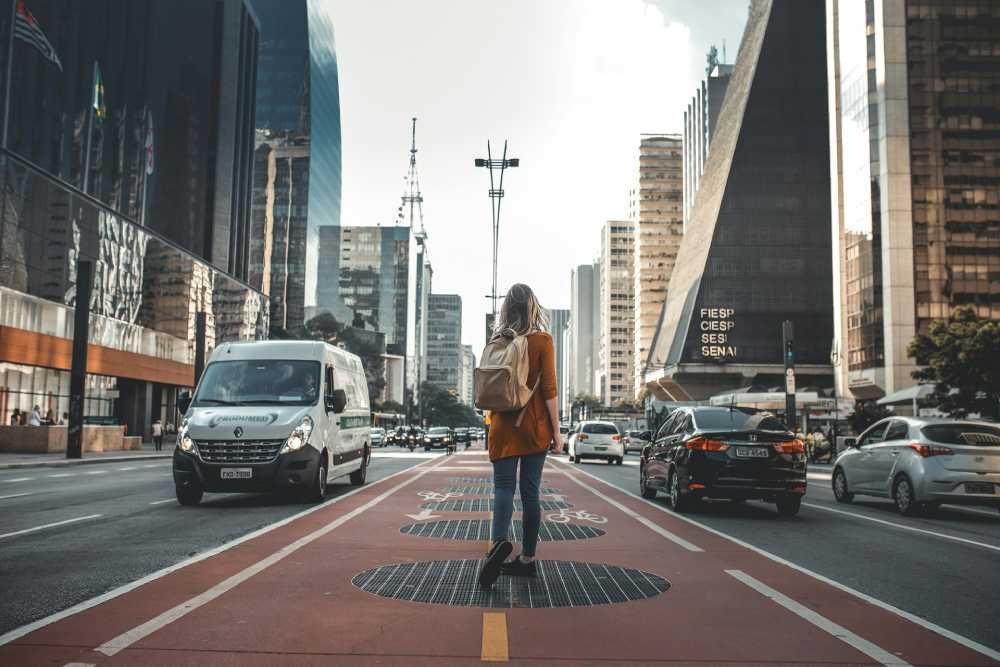When approached with intention and awareness, travel becomes more than an itinerary—it evolves into a meaningful journey of personal growth and global understanding. This sort of intentional exploration encourages us to appreciate the delicate balance between human curiosity and environmental stewardship, between connecting globally and respecting local cultures.
Purposeful travel is about making each trip not just about the destinations but the deeply personal narrative unfolding along the way.
Finding sources of inspiration is crucial in this approach. In this digital age, resources like the insight proffered by Chuck Roberts of Stifel, Nicolaus & Company can provide valuable perspectives on navigating life with deliberate and thoughtful action. Just as Roberts emphasizes the importance of intentional strategy in finance, travelers can apply this same care and consideration to their globetrotting pursuits.
Contents
- 1 The Allure of Sustainable Travel
- 2 The Art of Slow Travel: Reconnecting with the World
- 3 The Digital Nomad Lifestyle: Balancing Work and Wanderlust
- 4 Cultural Immersion: Tips for Authentic Experiences
- 5 Mindful Journeying: The Importance of Presence
- 6 Overcoming Obstacles: Dealing with Travel Uncertainties
- 7 The Future of Travel: Trends to Watch
The Allure of Sustainable Travel
The conversation surrounding sustainable travel has never been more pertinent. As adventurers, we are responsible for minimizing our footprint and seeking practices that support environmental conservation.
Delving into eco-friendly travel opens new learning experiences and ensures that the beauty of nature is preserved for generations to come. Moreover, this approach often engenders a deeper appreciation for our destinations as we become more attuned to the environmental and cultural nuances that define them.
Sustainable travel practices include choosing accommodations with green certifications, partaking in community-based tourism, and opting for modes of transport that lessen environmental impact.
Responsible travelers also strive to positively impact the local economies and ecosystems they visit, often informed by guidelines and principles established by organizations that champion sustainable tourism.
The Art of Slow Travel: Reconnecting with the World
Slow travel isn’t merely a mode of movement; it’s an ethos that encourages travelers to thoroughly immerse themselves in each destination. By spending more time in one location, visitors can create deeper connections with the culture, the people, and the rhythm of life there.
This form of travel allows for a richer, more authentic experience, promoting an understanding that reaches beyond the superficial layers presented to fleeting tourists. It nurtures patience, presence, and a sense of calm often lost in daily life’s fast-paced routines.
Activities such as prolonged stays, learning local languages, and participating in regional customs and festivals are emphasized during slow travel.
The ethos of slow travel champions the journey itself as a profound segment of the travel experience—whether via train rides across vast landscapes, cycling through rustic villages, or simply taking the time to observe the nuances of day-to-day life in a foreign locale.
The Digital Nomad Lifestyle: Balancing Work and Wanderlust
The rise of the digital nomad lifestyle showcases a harmonious blend of productivity and exploration. With technology enabling individuals to work from anywhere worldwide, there is unprecedented freedom to roam without abandoning professional commitments.
This fusion of work and travel is becoming increasingly mainstream as more organizations embrace remote work policies, thus empowering a new generation of professionals to design lifestyles around their wanderlust.
Digital nomads harness the power of the internet to perform their job duties from co-working spaces, cafes, or even beachfront hammocks. This shift redefines work-life balance and presents a new paradigm for employment and travel.
According to Forbes, the ability to ‘work from anywhere’ empowers people to enjoy a quality of life not tied to a single location, challenging traditional notions about where and how work can be accomplished. This movement also indicates the possibilities offered by an increasingly interconnected world.
Cultural Immersion: Tips for Authentic Experiences
For those with wanderlust, engaging authentically with different cultures forms the essence of travel. Shifting focus from ticking off tourist hotspots to seeking out local experiences can lead to a profound connection with the places we visit.
Practical steps like staying with a host family, frequenting local eateries instead of chain restaurants, or participating in traditional workshops characterize this level of engagement. These methods enable travelers to gain insights into the culture, perspectives, and way of life often overlooked by mainstream tourism.
By forging genuine relationships with local inhabitants and contributing positively to their livelihoods, travelers begin to understand the global village we all inhabit. The key is approaching cultural immersion with respect, open-mindedness, and a willingness to learn.
Local guides and community leaders can be invaluable in facilitating this cross-cultural exchange, ensuring that tourists’ curiosity translates into enjoyable experiences and that they respect local norms and traditions.
Mindful Journeying: The Importance of Presence
Integrating mindfulness into travel elevates the experience to new heights. By being fully present, travelers can savor every new sight, sound, and taste, deepening their appreciation for the diversity and beauty of the world.
Mindfulness can transform simple moments — such as watching a sunset or meandering through a market — into lifelong memories. These techniques include meditation, journaling, and simply taking the time to savor the moment, which can significantly enhance the quality of one’s travel.
Mindful traveling means putting away digital distractions to engage fully with the surroundings and the people we meet. It also involves listening actively, observing quietly, and moving through each environment with curiosity and reverence. This leads to a more serene travel experience and promotes inner peace that can benefit one’s health and well-being.
Overcoming Obstacles: Dealing with Travel Uncertainties
Seasoned travelers recognize that no matter how well one plans, the unexpected is part and parcel of the travel experience.
Adapting to these challenges, such as sudden changes in weather, transportation strikes, or health issues, is essential. Developing a travel resilience mindset and having contingency plans can transform obstacles into opportunities for growth and adventure.
One critical aspect of preparing for the unforeseen is having access to reliable travel insurance. Knowing local emergency numbers, the nearest embassy or consulate location, and having access to medical facilities can alleviate much of the stress of travel mishaps. Being informed, remaining calm, and keeping a flexible outlook allows travelers to navigate these uncertainties and confidently enjoy their experiences.
The Future of Travel: Trends to Watch
The realm of travel is ever-evolving, with sociocultural shifts and technological advancements consistently molding the industry. From the development of sustainable aviation fuel to the integration of artificial intelligence in personalized travel experiences, the trajectory of travel is pointed toward greater diversity, inclusivity, and thoughtfulness.
Future travelers may find themselves in virtual reality simulations of far-flung destinations or traveling from the comfort of their homes as augmented reality becomes more sophisticated.
At the same time, a growing emphasis on environmental stability will likely drive further innovations in low-impact tourism. As we look ahead, it is clear that how we traverse the globe will be deeply influenced by our collective aspirations towards balance, sustainability, and universally beneficial exploration.



